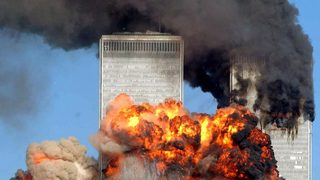
A front page on the Washington Post is titled, “War Support Ebbs Worldwide: Sept. 11 Doesn’t Justify Bombing,Many Say.” The piece finds that the initial outburst of solidarity after Sept. 11 has frayed considerably as U.S.warplanes bomb Afghanistan relentlessly for the fifth week running. This is true not only in Arab and other Muslimcountries, where the U.S. military campaign has provoked popular outrage, but in other countries where people feelless of a direct connection to the events.
In opinion polls and interviews in several countries in Africa, Asia, Latin America and Europe, many people who saidthey were horrified by the Sept. 11 attacks added that the horror then does not justify the bombing of Afghanistannow — even if their governments continue to back the U.S. campaign. In a war that Bush has described as a battlebetween good and evil, many said it is not so simple.
A poll taken this week for France 3 television and France Info radio, for instance, showed support among the Frenchfor the U.S. military campaign has dropped to 51 percent, down from 66 percent shortly after the bombing began Oct.7. Support also has declined in Germany, where polls show more than 65 percent of respondents now want the U.S.attacks to end, and in Spain, where a poll showed 69 percent of those surveyed want the bombing to stop.
Even in Britain, where Prime Minister Tony Blair has become a cheerleader for the U.S. campaign, popular support forthe bombing has begun to slip, sinking from 74 percent soon after the attacks in Afghanistan began to 62 percent in apoll conducted last week. In Russia, President Vladimir Putin’s strong backing of the bombing campaign muted mostcriticism at first. But in recent weeks, many Russians seem to have developed doubts about the U.S. venture into acountry known as the Soviet Union’s Vietnam. One poll this week found 46 percent of respondents convinced that theUnited States will fail.
And in Mexico, an increasingly close U.S. ally and a country that has traditionally stayed out of internationaldisputes, President Vicente Fox is walking a political tightrope by supporting the U.S. military effort. He and histop advisers have been blasted by critics who say that Mexico should support only peaceful, diplomatic solutions tointernational conflicts.
In the US, the attacks continue to spur debate, from radio programs to office hallways, subway cars, and livingrooms. One debate is among activists and progressives: whether to organize, whether to protest in the streets.
Guests:
- Todd Gitlin, Professor of Culture, Journalism and Sociology at New York University and author of ??TheSixties, The Twilight of Common Dreams and ??Media Unlimited: How the Torrent of Images and Sounds OverwhelmsOur Lives, to be published in March.
- Katha Pollitt, columnist for the Nation magazine author of ??Subject to Debate: Sense and Dissentson Women, Politics, and Culture.
- Kristen Schurr, social justice activist working with a New York anti-war coalition, and political sciencegraduate student at the New School.
- Eric Tang, organizer with the Committee Against Anti-Asian Violence (CAAV).
Related links:












Media Options